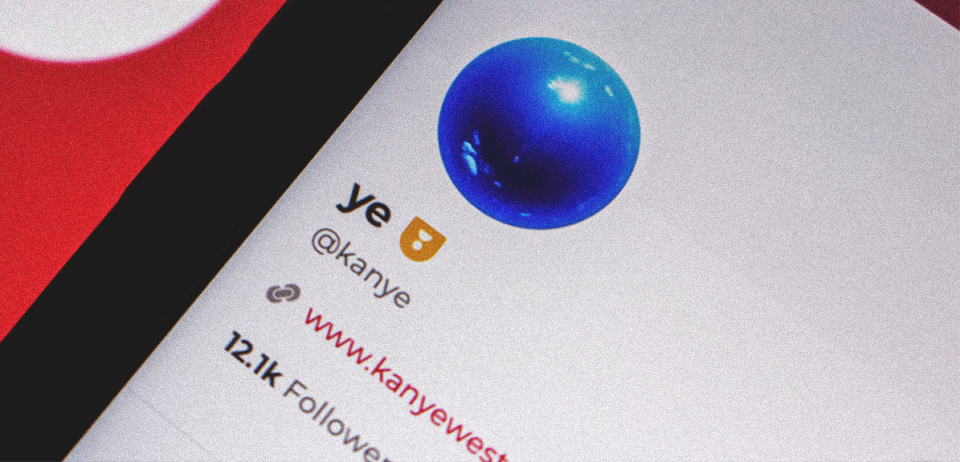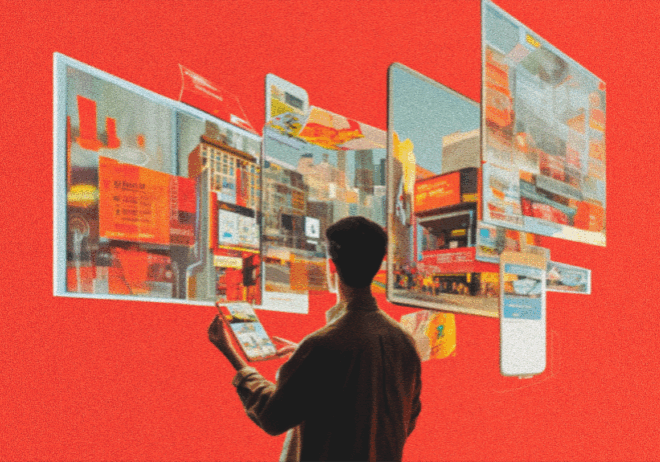
Why Kanye West’s Marketing Playbook is Risky for Brands
Kanye West is more than a musician—he’s a brand, a cultural disruptor, and a master of chaotic marketing. But as much as his unfiltered approach keeps him in the spotlight, it also comes with reputation-destroying risks that most brands simply can’t afford.
A 24-time Grammy winner and a master of chaotic marketing, once had lucrative partnerships with Adidas, Balenciaga, GAP, and CAA. But his controversial antics left him with an empty basket—no partnerships left with major fashion or sports brands. Yet, despite the fallout, Kanye continues to dominate pop culture headlines with his new albums and a steady stream of controversies. His relentless antics and unpredictable behavior have kept him at the forefront, making him a cultural phenomenon and the most engaged brand in the digital landscape.
Now, it’s time to peel back the layers and decode the marketing genius who turns every move, controversy, and breath into a headline-grabbing moment.
Here’s what brands can take from this chaotic marketing playbook and learn what NOT to do!
Kanye West’s zero-dollar Super Bowl Ad: A masterclass in virality
Kanye West’s Yeezy sold $19 million worth of products, spending zero dollars on advertising. How?
His marketing genius was on full display during the 2024 Super Bowl. Instead of a high-budget commercial, he simply filmed a 30-second selfie video on his iPhone.
Check out the video:
That 30-second, no-frills, raw, and unpolished video generated a million-dollar hype.
Why? Kanye knows how to tap into the psychology of his audience. His nonchalant, I-don’t-care attitude and his loyal following (which runs in double-digit millions across social media platforms) did wonders for sales and brand visibility.
But that wasn’t the only marketing win.
- Kanye’s latest stunt at the 2025 Grammy red carpet with his wife, Bianca Censori, snatched the spotlight from the event and even overshadowed the winners.
- His audacious slogan, “We beat the Grammys,” will likely go down in marketing history. Kanye later claimed that the attention generated by their appearance outshined the event itself, and well, the numbers didn’t disagree.
- And let’s not forget Ye’s infamous interruption of Taylor Swift at the MTV Awards, where he declared, “Beyoncé had one of the best videos of all time!” That moment became a cultural touchstone and solidified Kanye’s reputation as the king of controversial marketing.
Kanye’s former wife, Kim Kardashian, and her family have written the gospel of modern-day marketing, but Kanye? He’s in a league of his own. His unapologetic embrace of controversy keeps people talking, searching, and engaging with his brand.
Love him or hate him, Kanye ensures that everyone is watching. However, the same rules don’t apply for brands!
Kanye West’s brand strategy: Chaos equals fame
Kanye West is not just a singer— he’s a brand, and he knows how to stay on top of the game. What’s his charisma? Chaos.
Pop artists, singers, and musicians bask in glamour and luxury. Creating art is one task, but building a brand out of the artist is paramount. And let’s be honest—if the music isn’t coming from a big name, it will go underrated for years. Kanye is known for causing a stir. Unlike traditional brands, he thrives on controversy, unpredictability, and spectacle. His chaotic energy makes up for all the strategies and branding that even the sharpest analysts could think of.
Risk aversion is not in his dictionary. He doesn’t hide behind glass while advertising himself or his products—and that’s where he makes himself vulnerable. Whether he’s making inflammatory remarks, storming off social media, or releasing music in the midst of scandal, everything he does feeds into his brand’s engagement cycle.
But here’s the problem:
- Controversy is volatile.
- Brands rely on trust, not just attention.
- Long-term reputations can be destroyed in a single misstep.
Big brands wouldn’t survive by adopting Kanye’s no-filter, high-risk marketing. That’s precisely why significant sports brands are no longer collaborating with Ye. Overdoing the controversy schtick can shatter the glass; when that happens, the bullets can reach and destroy you.
Kanye, however, doesn’t need corporate approval! He is a billionaire and still holds a net worth of 2.77 billion USD in 2025. He controls his own brand, takes his own risks, and profits from the chaos. If you type “Kanye West” into Google, you’ll quickly unravel the enigma that keeps him in the headlines.
For businesses, though, risk aversion is critical.
Kanye’s marketing rule brands SHOULDN’T follow: Just because you can doesn’t mean you should
There’s a fine line between what a brand can and should do—and that distinction lies in ethics and brand perception. For brands, the “should” factor is directly tied to brand equity, audience perception, and long-term sustainability.
Brands like Wendy’s and Duolingo have mastered the art of playful, unhinged social media marketing, pushing boundaries without crossing ethical lines. However, their strategies are calculated and aligned with their brand personas, which are quirky, humorous, and culturally relevant.
Kanye West, on the other hand, operates in a completely different sphere. His marketing strategy is often walking a tightrope between brilliance and brand suicide. Kanye’s antics might generate short-term buzz, but they come at a steep price.
Adidas and Balenciaga didn’t cut ties with him because they couldn’t tolerate the backlash—they did it because maintaining their ethical boundaries and safeguarding brand values required it.
His antisemitic remarks, admiration for extremist ideologies, and polarizing public appearances crossed the ethical line, making the continued association a reputational liability.
The hidden cost of chaotic marketing
For marketers navigating the thin ice between edgy and offensive, the key lies in understanding the emotional undercurrents of their target audience and staying aligned with the brand’s core values.
Kanye’s ability to polarize and captivate audiences may work for his personal brand, but most companies cannot afford that level of reputational volatility. Even when controversy generates media mileage, brand trust erosion can have irreversible consequences.
Kanye’s marketing tactics illustrate the immense power of personal branding but also highlight the dangers of prioritizing short-term virality over long-term brand loyalty.
Marketers should ask themselves whether aligning with controversy or unfiltered marketing tactics contributes positively to the brand’s narrative or if it risks alienating core audiences.
The Kanye playbook might work for a brand built on individualism and defiance, but for brands that operate within a structured framework of corporate responsibility, the ethical considerations of “should” will always outweigh the opportunistic allure of “can.”
Cut to the chase
Kanye West’s chaotic marketing playbook works for him because he thrives on controversy. But for brands? The risk far outweighs the reward. In an era where trust is currency, brands must choose sustainability over spectacle.

